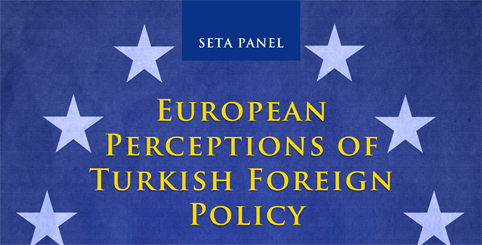As a staunch ally of NATO whose actions were easy to predict, Turkey did not attract much attention as a foreign policy actor until a decade ago. The increasing activism of Turkish foreign policy and the greater initiative taken by Turkish elites have raised interest in Europe. After overcoming the first wave of bewilderment and irritation at Turkey’s independent foreign policy initiatives, Europeans have started to develop a more nuanced approach towards the specifics of Turkish foreign policy.
Currently, debates over Turkey are not confined to EU accession discussion alone. Instead, they consider the implications of Turkey’s more assertive foreign policy as well. As Europe has become more familiar with Turkey, AK Party’s foreign policy has been more positively received in Europe. Turkey is now considered an essential foreign policy voice by the majority of European intellectuals—one that cannot be ignored in any diplomatic developments within Turkey’s greater region.
Nonetheless, positive perception of Turkish foreign policy is not without question marks and confusion regarding objectives of Turkish foreign policy. The study at hand aims to analyze European elites’ perceptions of Turkish Foreign Policy under AK Party period. The policy brief is made up of three parts. The first part of the policy report gives a brief introduction to the evolution of Turkish Foreign Policy under the AK Party period. The second part attempts to reveal overall perceptions of Turkish Foreign Policy among European elite. The third part of the policy report places the focus on what European elite think of the main debates that Turkish foreign policy has generated over the last few years: Shift of Axis, Turkish Model, Over-Stretch in Turkish Foreign Policy and neo-Ottomanism.








